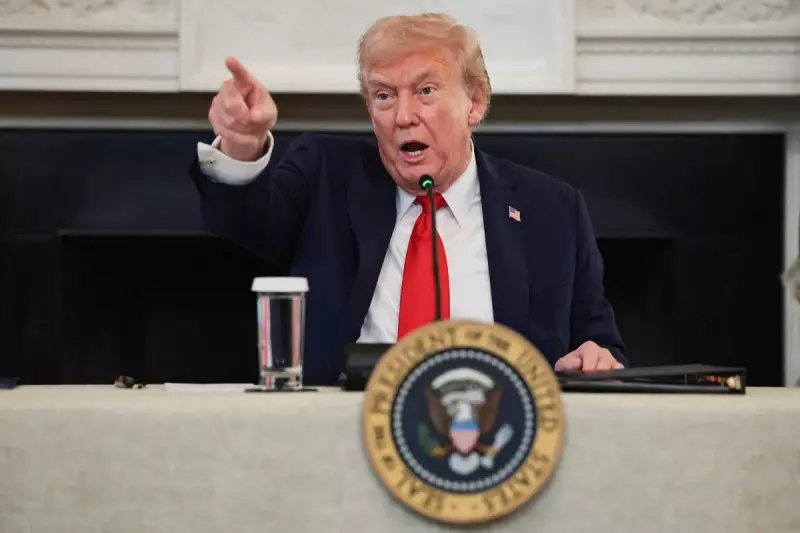
In a revelation that could reshape Middle East diplomacy, former US President Donald Trump has declared his intention to visit the Gaza Strip if he returns to the White House, positioning himself as the first American leader to ever set foot in the contested territory.
Breaking Diplomatic Boundaries
The controversial former president made the announcement during a wide-ranging interview, stating he would personally travel to Gaza as part of his renewed effort to broker peace between Israel and Palestine. This unprecedented move would see Trump navigating one of the world's most volatile regions, currently controlled by Hamas and subject to extensive Israeli blockades.
A Controversial Peace Vision
Trump's proposed visit forms part of what he describes as a "much better" peace deal than any previous attempts. While specifics remain scarce, the former president suggested his approach would differ significantly from the Abraham Accords, his signature foreign policy achievement during his first term that normalised relations between Israel and several Arab nations.
"I will have the Palestinian crisis solved," Trump asserted with characteristic confidence, though he offered few concrete details about how he would achieve what decades of diplomacy have failed to accomplish.
Mixed Reactions and Security Concerns
The announcement has already sparked intense debate among foreign policy experts and Middle East analysts. Supporters see it as a bold demonstration of Trump's commitment to hands-on diplomacy, while critics question both the feasibility and security implications of such a visit.
Security analysts have raised serious concerns about the logistical challenges and potential risks involved in bringing a sitting US president into Gaza, given the territory's complex political landscape and ongoing tensions.
The Netanyahu Factor
Trump's relationship with Israeli Prime Minister Benjamin Netanyahu appears to have evolved since their previous collaboration. While stopping short of full endorsement, Trump described Netanyahu as "a good guy" who has been weakened politically by recent events in Israel.
The former president's comments come amid ongoing violence in the region and stalled peace negotiations, positioning his potential Gaza visit as both a symbolic and substantive intervention in one of the world's most intractable conflicts.
As the 2024 election campaign intensifies, Trump's Gaza pledge adds another layer to his foreign policy platform, potentially appealing to voters looking for unconventional approaches to longstanding international challenges.






